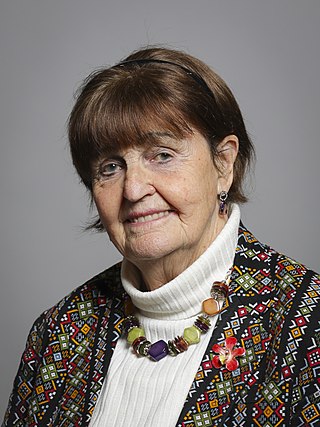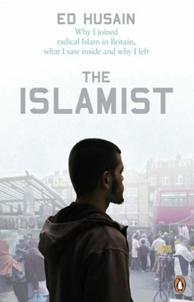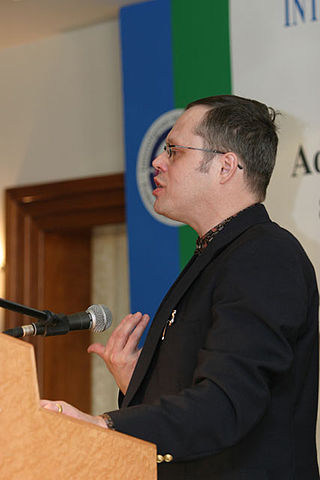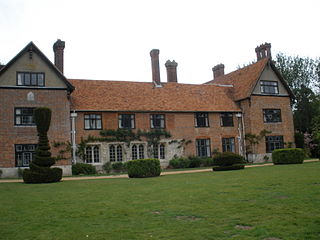Islamic schooling
From the early 1970s, the Trust started up Islamic religious lessons for Muslim pupils. Schools in the UK had Christian religious lessons as standard, but pupils were allowed to opt out of these classes. The Trust began giving alternative Islamic lessons for pupils to be held during the time in school that they had Christian based religious lessons. Newham was the first borough to allow the Islamic lessons, along with Hackney, followed by Bradford and other cities outside of London. Approx 20 volunteers taught these classes throughout the 1970's. [6]
The Trust also began supporting efforts to open private Islamic schools in 1974, [7] and by 1992, 23 Islamic schools were open, all supported by the Trust. Important leaders in this movement were Ibrahim Hewitt, Yusuf Islam (formerly Cat Stevens), [8] [9] Afzal Rahman, [7] and Gulam Sarwar. In 1991, Sarwar wrote a book, British Muslims and Schools, which focuses on why such schools should exist and why they should receive public funding like other British schools. [10]

The London Borough of Tower Hamlets is a borough of London, England. Situated on the north bank of the River Thames and immediately east of the City of London, the borough spans much of the traditional East End of London and includes much of the regenerated London Docklands area. The 2019 mid-year population for the borough is estimated at 324,745.
A parochial school is a private primary or secondary school affiliated with a religious organization, and whose curriculum includes general religious education in addition to secular subjects, such as science, mathematics and language arts. The word parochial comes from the same root as "parish", and parochial schools were originally the educational wing of the local parish church. Christian parochial schools are called "church schools" or "Christian schools."
The Albany Trust is a British organisation which describes itself as a "specialist counselling and psychotherapy charity, focusing on a positive approach to sexuality and relationships". It was founded as a registered charity in May 1958 to complement the Homosexual Law Reform Society (HLRS).

Islam is the second-largest religion in the United Kingdom, with results from the 2021 Census recording just under four million Muslims, or 6.0% of the total population in the United Kingdom. London has the largest population and greatest proportion (15%) of Muslims in the country. The vast majority of Muslims in the United Kingdom adhere to Sunni Islam, while smaller numbers are associated with Shia Islam.

Birmingham Central Mosque, is a mosque in the Highgate area of Birmingham, England, run by the Birmingham Mosque Trust. The organization, 'Muslims in Britain’ classify the Birmingham Central Mosque as, nonsectarian. The mosque has a capacity of 6,000, including women. The mosque provides a Sharia Council which in 2016 handled 400 requests for divorce.

Hinduism is the third-largest religious group in the United Kingdom, after Christianity and Islam; the religion is followed by over one million people representing around 1.6% of the total population. According to the 2021 United Kingdom census Hindus are primarily concentrated in England, particularly in Greater London and the South East, with just under 50,000 Hindus residing in the three other nations of the United Kingdom. Hindus have had a presence in the United Kingdom since the early 19th century, as at the time India was part of the British Empire. Many Indians in the British Indian Army settled in the United Kingdom of Great Britain and Northern Ireland.
A faith school is a school in the United Kingdom that teaches a general curriculum but which has a particular religious character or formal links with a religious or faith-based organisation. The term is most commonly applied to state-funded faith schools, although many independent schools also have religious characteristics.

Caroline Anne Cox, Baroness Cox, is a cross-bench member of the British House of Lords. She is also the founder of an organisation called Humanitarian Aid Relief Trust (HART). Cox was created a Life Peer in 1982 and was a deputy speaker of the House of Lords from 1985 to 2005, as well as being a minister in government. She was also a Baroness-in-Waiting to Queen Elizabeth II. She was Founder Chancellor of Bournemouth University, Chancellor of Liverpool Hope University from 2006 to 2013, and is an Hon. Vice President of the Royal College of Nursing. She was a founder Trustee of MERLIN Medical Emergency Relief International.

The Islamist: Why I Joined Radical Islam in Britain, What I Saw Inside and Why I Left is a 2007 book about Ed Husain's five years as an Islamist. The book has been described as "as much a memoir of personal struggle and inner growth as it is a report on a new type of extremism." Husain describes his book as explaining "the appeal of extremist thought, how fanatics penetrate Muslim communities and the truth behind their agenda of subverting the West and moderate Islam."
Islam: Beliefs and Teachings is an internationally recognised book by Ghulam Sarwar of the Muslim Educational Trust. It was published by Sarwar as the first English textbook for madrasa students in Britain.
Ghulam Sarwar is a Bangladeshi-born British writer on Islam in English and director of the Muslim Educational Trust (MET).
Brondesbury College for Boys (BCB) is a selective independent school for boys situated in Brent, London, England. It was founded by Yusuf Islam in 1996, as part of the Waqf Al-Birr Educational Trust, to provide an education institution for young Muslim students in the United Kingdom. Brondesbury College performs well in Brent and also nationally with an 83% 5+ A*–C pass rate in GCSE in 2014. BCB's current head master is Amzad Ali, who succeeded Salahuddin Clifton.
The Constitution of Bangladesh includes secularism as one of the four fundamental principles, despite having Islam as the state religion by 2A. Islam is referred to twice in the introduction and Part I of the constitution and the document begins with the Islamic phrase Basmala which in English is translated as “In the name of Allah, the Beneficent, the Merciful” and article (2A) declares that :"Islam is the state religion of the republic". Bangladesh is mostly governed by secular laws, set up during the times when the region was ruled by the British Crown.

Clinton Bennett is a British-American scholar of Religious studies and participant in interfaith dialogue, specializing in Islamic studies and the relations between Islam and other religions. He is also a published author.

Stanbridge Earls School was a coeducational independent special school located near Romsey, Hampshire, England. Students ranged in age from 10–19. The school catered for both boarding and day pupils. The school specialized in teaching and helping pupils with dyslexia, dyscalculia, developmental coordination disorder and mild Asperger syndrome. In 2013 the school was criticised for excluding a pupil who claimed that she had been raped. The school closed in 2013, following a series of inspections and investigations, when reduced pupil numbers led to it becoming financially unviable.
Dilwar Hussain is an independent British consultant working on social policy, Muslim identity and Islamic reform in the modern world. He formerly taught MA courses on Islam and Muslims at the Markfield Institute of Higher Education.

The Khalili Foundation is a UK-based charity promoting interfaith and intercultural understanding through art, culture and education. Its founder and chairman is the London-based philanthropist, art collector and scholar Sir David Khalili. A Persian Jew who grew up in Iran, he is notable for having the world's largest private collection of Islamic art. Established in 1995, the foundation has created interfaith and intercultural links through "cultural, academic, sporting and educational programmes".
Vivian Wineman was president of the Board of Deputies of British Jews, the representative body of the Jewish community in Britain, from 2009 to 2015.
The Trojan Horse scandal, also known as "Operation Trojan Horse" or the Trojan Horse affair, is a conspiracy theory that posits a plot to introduce an "Islamist" or "Salafist" ethos into several schools in Birmingham, England. The name, based on the Greek legend, comes from an anonymous letter sent to Birmingham City Council in late 2013, alleged to be from Birmingham "Islamists" detailing how to wrest control of a school, and speculating about expanding the scheme to other cities. The letter was leaked to the press in March 2014. Around a month later, Birmingham City Council revealed that following the letter release it had received hundreds of allegations of plots similar to those described in the letter, some claims dating back over 20 years. The letter has been characterised as "incomplete, unsigned and unaddressed", but led to two investigations commissioned by the Department for Education and Birmingham City Council, the Clarke and Kershaw Reports, respectively. The reports did not both endorse the idea of "a plot", but point to "behaviour indicative of a concerted attempt to change schools".
Islamophobia in the United Kingdom refers to a set of discourses, behaviours and structures which express feelings of anxiety, fear, hostility and rejection towards Islam or Muslims in the United Kingdom. Islamophobia can manifest itself in a wide range of ways; including, discrimination in the workforce, negative coverage in the media, and violence against Muslims.









